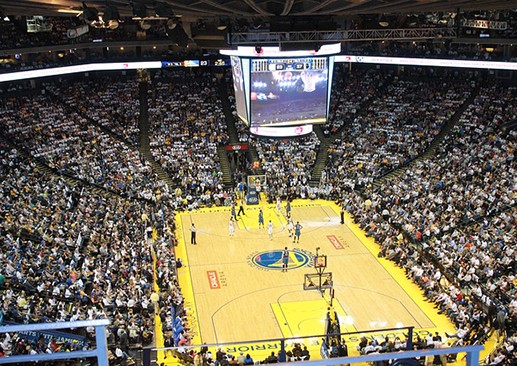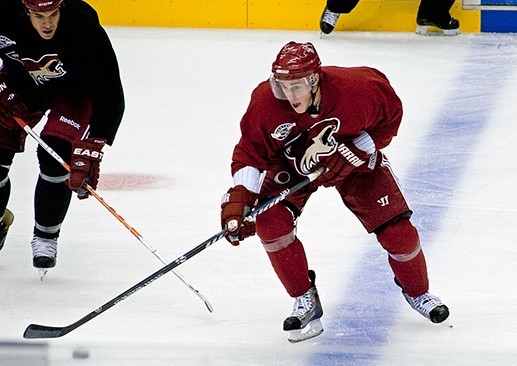It’s a tale as old as professional sports.
An athlete gets a multi-million dollar contract, and spends his money on the assumption that he’s actually worth what his million-dollar base salary says he’s worth.
Sean Avery, the former New York Rangers center, offers some important money advice in his first article for The Players’ Tribune.
Avery writes that his first professional deal was a three-year, $1.275 million minor-league contract with the Detroit Red Wings, which included a $125,000 signing bonus. He was 20 years old. You can imagine what comes next.
That $125,000 quickly shrank to $71,250 after taxes and agent fees, but that didn’t stop him from dishing out $28,000 for a new Ford Bronco.
When Avery reached the NHL two years later, he found himself dishing out even more money to impress the “12 future Hall of Famers” on his team, which included a $750 pair of Zegna pants.
Oh, and the Bronco? He was embarrassed that it wasn’t as fancy as his teammates’ wheels.
Over his first six years, he says he wasted $1 million on “stuff.” But then something happened: he got smart with his money. Avery hired a money manager and invested his funds in a diverse portfolio of assets, including restaurants, real estate and fine art.
The New Avery Rule was also born, which he describes below:
“The New Avery Rule is based on two simple words: per diem. It’s the spending money the team gives you, and it’s about as free as money gets for a professional athlete. When I was in the NHL, we received $96 a day in per diem money during training camp (that’s 30 days, or $2,880) and for each day we were away for road games. The NHL schedule has 41 road games per team, and if you play out west, the travel schedule is brutal, so you could easily rack up 100 per diem days a season, plus training camp. That’s $12,480. All tax-free.”
According to Avery, if a NHL player lived by this rule he would amass approximately $124,800 by the end of his career. This might not seem like much for someone with a multi-million dollar contract, but considering the taxes, agent fees and 20 percent escrow a player’s salary is subject too, that $100k means a lot.
“Consider some misleading facts: The average NHL career is five-and-a-half years long and the average NHL salary is $2.4 million. So the average guy should have a total of $13.2 million at the end of his playing days. That’s more than enough to live happily ever after.
In truth, it isn’t. Taxes take about half (if you take no evasive tax action), agent and management fees take 25 percent, and the NHL snatches another 20 percent to put in escrow, which the owners balance out at the end of the season. Sometimes, they use the players’ cash to help small-market teams. Sometimes we’d get a refund. But for The New Avery Rule purposes, consider it gone. So really, that $13.2 million becomes $660,000 — which is still a lot of money, but you have to make that last for the next 50 or 60 years because if you have a five-and-a-half year NHL career, you’ve retired at age 25 or 26.”
Other athletes aren’t as lucky. Sports Illustrated penned a great article in the midst of the financial crisis in 2009 about this topic. Here are some eye-opening facts from it:
• 78 percent of former NFL players are bankrupt two years after they retire.
• 60 percent of NBA players are broke five years after their playing careers are over.
One of the biggest problems for athletes, Sports Illustrated says, is the diversity of their investment portfolios. Too often, they sink all of their money into high-risk inventions, restaurants, night clubs and car dealerships.
Get today’s business news in your inbox–sign up for our daily Must Read Money Stories.
Money manager Ed Butowsky told the magazine athletes should be investing “5% to private equity, 7%-12% to real estate, 50%-65% to a mix of public securities (stocks, mutual funds and the like) and the rest to alternatives such as gold and hedge funds.”
Unfortunately, very few players have the opportunity to get advice from someone like Butowsky, and instead rely on family and friends who might not have their best interest in mind.
Some, like Magic Johnson, end up with success stories, becoming team owners, franchise holders and philanthropists. But too many are left penniless and bankrupt when their playing years are over.
Hopefully, Avery’s advice will reach the ears of athletes everywhere.











